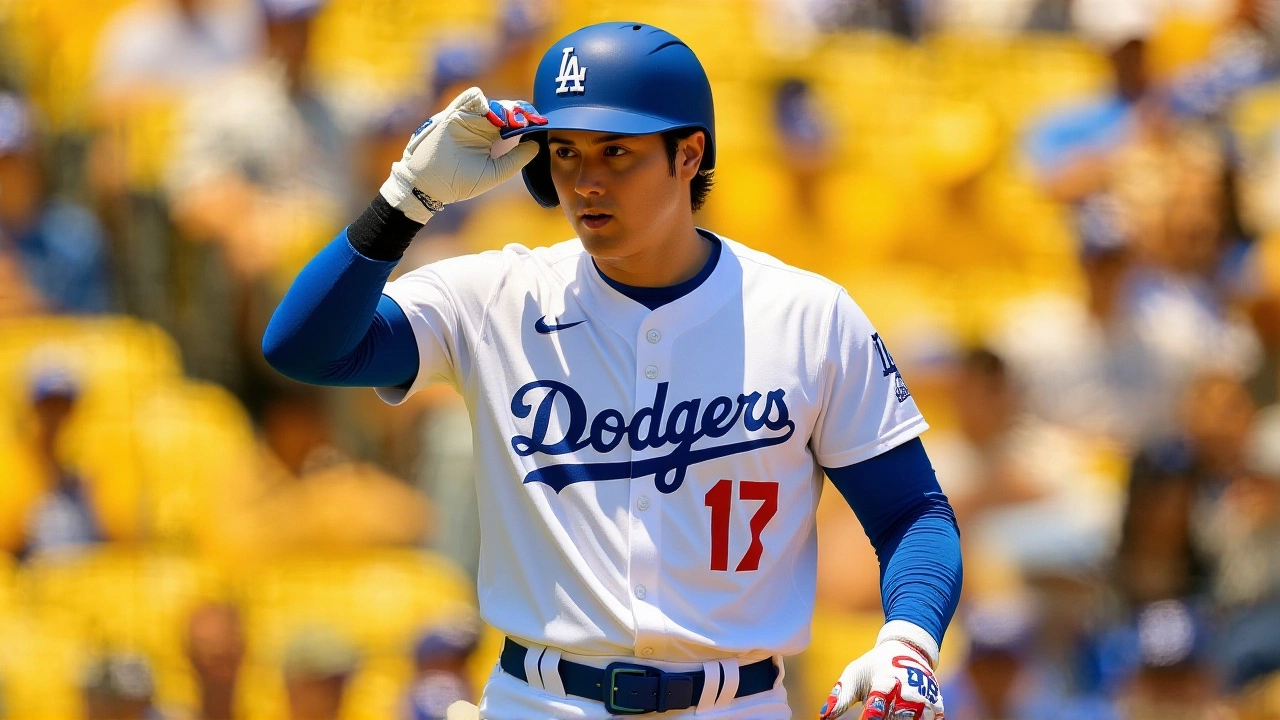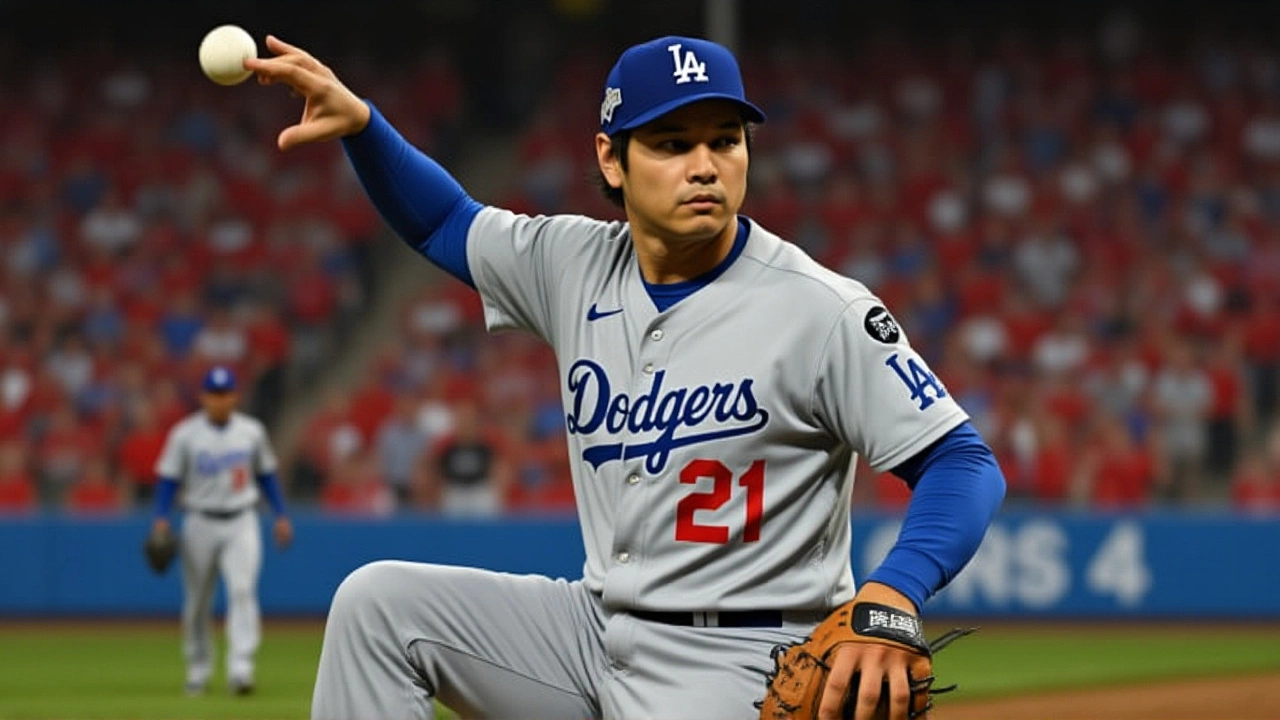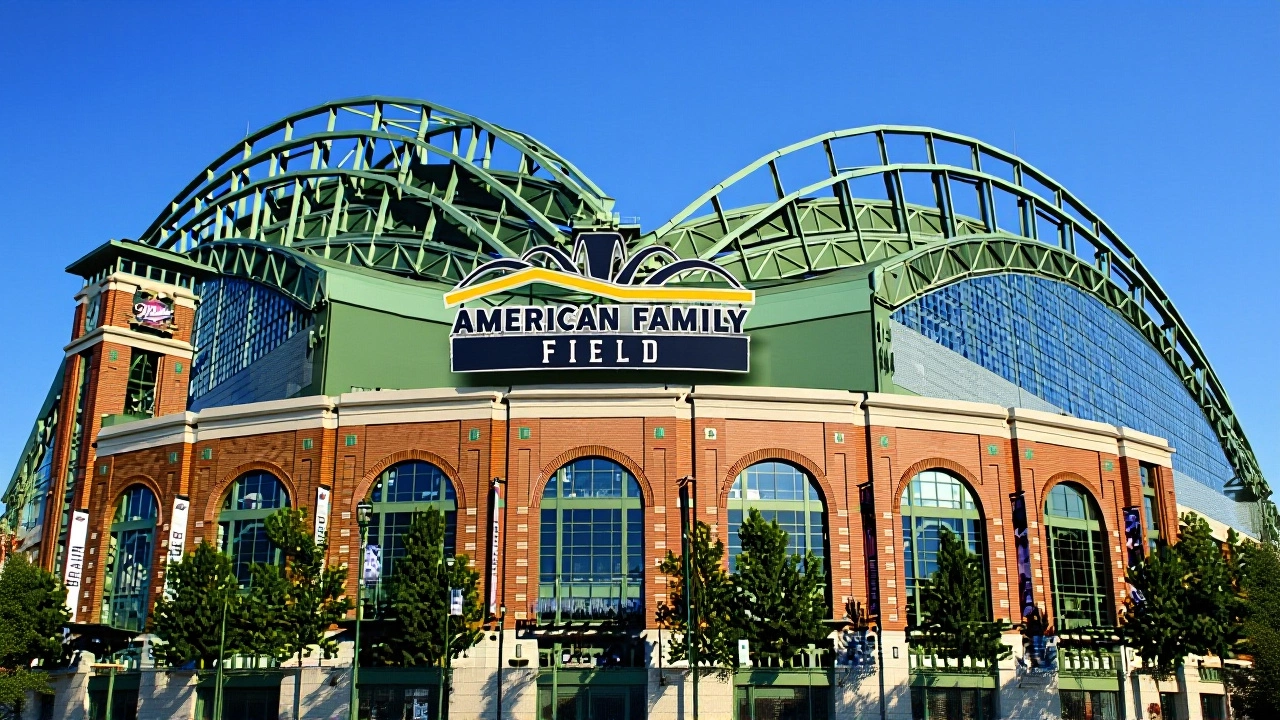
When Los Angeles Dodgers topped Milwaukee Brewers 3‑1 in Game 3 of the 2025 National League Championship SeriesLos Angeles, the West Coast club seized a 3‑0 series advantage and moved within a single win of the World Series.
Historical Context: A Tale of Two Franchises
Both teams entered the 2025 postseason with contrasting narratives. The Dodgers, fresh off a 106‑win regular season, had already trounced the San Diego Padres in the NLDS. The Brewers, meanwhile, had surprised many by dispatching the New York Mets in a gritty five‑game series, riding the momentum of a late‑season surge that saw them win 94 games.
Since the first NLCS meeting in 1978, the Dodgers have held a 7‑2 edge, but the Brewers have narrowed the gap in the past decade. This Game 3 was a litmus test for whether the Dodgers could chalk up another championship before the century’s end.
Game‑Day Details: How the Dodgers Took Control
Opening on a clear October evening, the atmosphere at Dodger Stadium (still the official venue despite the broadcast listing an "unspecified venue") was electric. The first batter, right‑hander Shohei Ohtani, ripped a triple into left‑center on his very first pitch. He was erased on a sharp grounder to second baseman Terang, but the triple set a tone.
The Dodgers’ breakthrough came in the top of the first when Brewers reliever Kohei Arihara tossed a wild throw to first base. First baseman Freddie Freeman raced home, giving Los Angeles a 1‑0 lead.
In the second inning, Mookie Betts plated an RBI single, his fourth hit of the day, extending the margin to 2‑0. The Brewers responded with a lone run in the fourth, but the Dodgers answered back in the sixth when Cody Bellinger ripped a triple that bounced off the left‑field wall before he doubled home the go‑ahead run.
Closer Hiroyuki Sasaki entered in the ninth, striking out Trea Turner and catching a pop‑up from Tioscar Hernández to seal the 3‑1 victory.
- Final Score: Dodgers 3, Brewers 1
- Series Lead: Dodgers 3‑0
- Key Performers: Ohtani (triple), Bellinger (triple & double), Sasaki (save)
- Dodgers’ Postseason Record: 8‑1
- Crucial Error: Arihara’s throw to first
Player Spotlights: Who Shined and Who Faltered
Shohei Ohtani made his presence felt early, showcasing the blend of power and speed that made him a generational talent. Though his triple didn’t translate into a run, it forced the Brewers into a defensive scramble.
Cody Bellinger delivered the most dramatic swing of the night. His triple, described by the TBS analysts as "hard down the left‑field line, bouncing off the wall," turned the tide and highlighted his resurgence after a sophomore slump.
On the mound, Jacob Miseroski (Brewers) struggled with command, allowing two early hits that set up the Dodgers’ first run. In contrast, Dodgers' starter Will Smith (catcher, not a pitcher) kept the defensive rhythm steady, snaring a crucial pop‑up in the middle of the diamond.
The Brewers’ bullpen, already rattled by two errors, could not stop the late‑inning surge. Reliever Tyler (full name undisclosed) inherited a jam in the sixth but was unable to quell Bellinger’s momentum.

Analyst Takeaways: Why the Dodgers Look Unstoppable
The post‑game panel on MLB on TBS—featuring Hall‑of‑Famer Pedro Martinez, former outfielder Curtis Granderson, ex‑shortstop Jimmy Rollins, and insider Adam Lefkoe—agreed that the Dodgers’ pitching corps had "essentially locked down the Brewers’ offense".
Martinez emphasized the "Gold‑glove form" displayed by both the defense and Sasaki’s closing package. Granderson pointed to the cumulative impact of three errors by Milwaukee pitchers and relievers, noting that "errors are the silent killers in postseason baseball".
Rollins highlighted the Dodgers’ depth, saying, "When you have a player like Ohtani who can change the game in his first at‑bat, you force the opposition to live on edge all night." Lefkoe added that the Dodgers’ 8‑1 playoff record underscored a "steamroll" that could carry them to the World Series.
Future Outlook: What’s Next for Both Clubs?
Game 4 is slated for October 18 at the same venue, and the Dodgers need just one more win to clinch the NL pennant. With the bullpen humming and the lineup clicking, many pundits give Los Angeles a 75 % chance of closing the series in Game 4.
The Brewers, now down 0‑3, face an uphill battle. Their front office must decide whether to ride the current rotation or dig deeper into the minor leagues for a spark. The next two games could essentially be a ‘do‑or‑die’ for Milwaukee’s postseason hopes.

Background: The NLCS’s Evolution and Its 2025 Stakes
The National League Championship Series, inaugurated in 1969, has produced some of baseball’s most iconic moments—from Carlton Fisk’s 1975 walk‑off home run to the 2016 dramatic Game 7. This year’s matchup carries extra weight because both clubs are looking to end long World Series droughts.
For the Dodgers, it would be their first championship since 2020, a title that came during a pandemic‑shortened season. For the Brewers, a World Series would be a first in franchise history, dating back to their 1970 relocation from Seattle.
Frequently Asked Questions
How does this victory affect the Dodgers' odds of reaching the World Series?
Taking a 3‑0 lead means the Dodgers need only one more win out of a possible two games. Bookmakers have shifted the Dodgers’ World Series probability from roughly 55 % before Game 3 to about 75 % after the win.
Which Brewers players are most likely to spark a comeback?
Outfielder Christian Yelich remains the team’s most consistent hitter, while pitcher Corbin Burnes could provide a dominant start in Game 4 if the bullpen can tighten up.
What role did errors play in the outcome of Game 3?
Milwaukee committed two pivotal throwing errors, both by reliever Kohei Arihara. Those miscues directly resulted in the Dodgers’ first two runs, underscoring how defensive lapses can tilt a postseason game.
When is Game 4 scheduled, and where will it be played?
Game 4 is set for October 18, 2025, at Dodger Stadium in Los Angeles. A night‑time start is expected, with a national broadcast on TBS.
What does this series tell us about the Dodgers' postseason strategy?
The Dodgers have leaned heavily on depth—balancing power hitters like Ohtani and Bellinger with a versatile bullpen. Their ability to capitalize on opponent errors while maintaining low run production demonstrates a disciplined, small‑ball approach that has paid dividends.